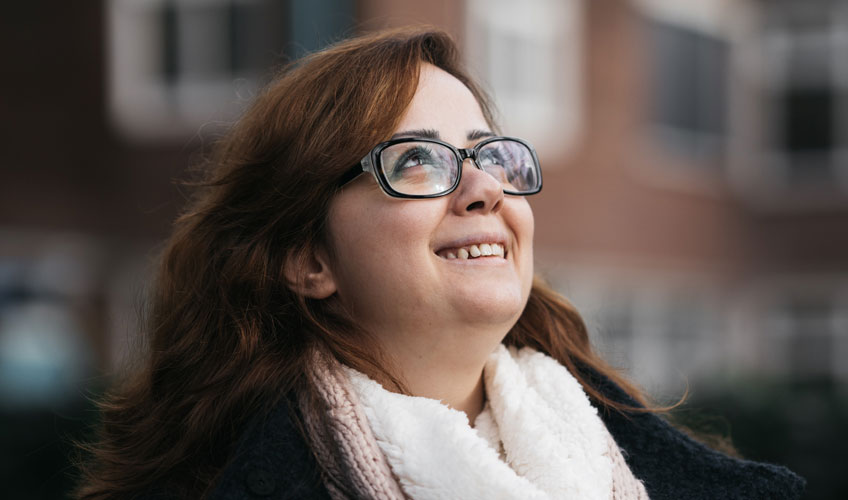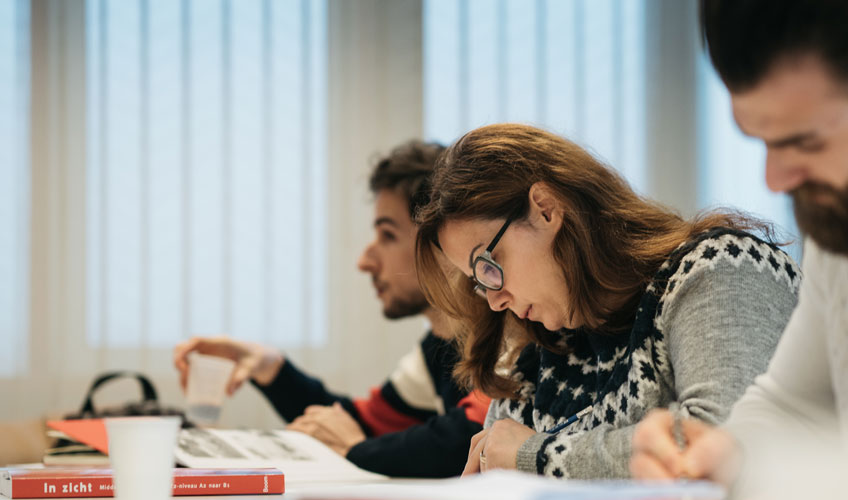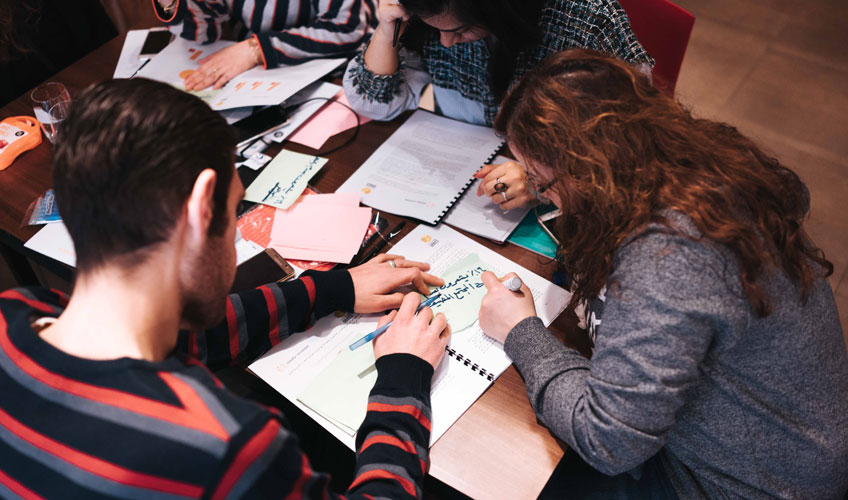Building a new life in the Netherlands: Rahaf’s story
Syria’s ongoing conflict has left the country and its people scattered and shattered, with an estimated 11 million refugees all over Europe and the Middle East.
In an effort to build a new life for themselves, young Syrians face different social and psychological challenges. How do they fully integrate into a society and still stay connected to their Syrian identity? Aswat Faeela (Active Voices) created a network for young Syrians to help them work together, build a new life and have a voice. One of them is Rahaf, who has a story to tell.
“I left Syria using the services of illegal smugglers, like most people who came to Europe.” Travelling by sea, Rahaf arrived in the Netherlands two and a half years ago. Originally from Aleppo, Rahaf had to leave Syria in a rush. “No doubt, the trip was difficult”, she says. “But I comforted myself with humor. I considered the trip as an adventure. As a tourist trip.”

The challenges
In the face of hardship, Rahaf always try to see the positives. But when she finally arrived in the Netherlands, it was hard for her to adjust and encountered many barriers. Rahaf recalls:
It is difficult to come to a strange country that you have no clue about. Everything is strange, customs and traditions, the language, people, the way they deal with you. You have to find a new way to deal with everything, and that’s hard.
Although Syrians settling in the Middle East face different adversities than those settling in Europe, they face lots of common challenges. “Regardless, everyone, you have to start from zero,” Rahaf says. “Even those who live just outside Syria. They may speak the same language, but they face other big challenges, like the search for basic necessities. For them, it may seem that the Syrians in Europe are living in comfort and happiness, but we face other problems. Our basic needs may be met, but we still suffer. Us Syrians are strong, we do not surrender, our pride doesn’t let us surrender to a psychological condition, to the feeling of hopelessness, or to the inability to work.”
Building a new life

Her pride offers Rahaf a way to tackle any challenge that comes her way but it has been difficult. She has had to face the challenge of her skills and knowledge being understimated in her new home. “I was working as a programme coordinator in Syria for a community project called ‘Bridges of Peace’. When I applied for jobs or voluntarily positions in the Netherlands, my experience was underestimated every time. For two full years, I was without a job”, she says. “Then I finally found a position, it didn’t matter that it was voluntarily. They [the organisation] accepted me as a secretary, because they needed an Arabic and English speaker. I had to let go of all my previous experience, but I chose to seize it as an opportunity to learn.”
Finding a network
In the process of adapting to a new life, many young Syrians also combat feelings of loneliness as they’ve settled into a new country by themselves, or with family members missing. For a year and a half, Rahaf lived by herself, waiting for her husband to join her. She tells us; “without anyone encouraging and supporting me, it felt like there was something lacking. When he arrived, he built me a family again, a support system, and he made me feel safe. He gave me the feeling of safety that you get from guidance and support.”
Being strong and having a voice in your society is much more difficult without a support system. How do you keep strong under so much pressure, while the feeling of loneliness is taking over? Strength and the ability to speak out is something you can find within yourself, but it gets stronger with others by your side and when encouraged by others.
The existence of projects like Aswat Faeela is so necessary. These projects help Syrians from everywhere to find a support network and raise their voice up. They don’t have to be merely refugees, sometimes stripped of every value, and they can be more than just numbers.

Aswat Faeela brings together Syrians so they can find support while their regular support system is far away. The project also supports these young peacebuilders to advocate for the needs of their communities both in their new homes and as a global network. For Rahaf, this is a system that is essential, both for adapting to a new life, and the ultimate return to home. “We have to derive strength from each other and push each other to take the first step to integrate into a new society.” She goes on,
At the same time, we need to focus on supporting and developing ourselves and each other, so that one of these days, when we go back to our homeland, we would be carrying something between our hands to offer to our country.
Together for Syria
Follow the journey of these young people as we share the stories of inspiring Syrian peacebuilders and social activists as they build peace far away from home.
About the project
Aswat Faeela (Active Voices) is a project to develop the social leadership skills of youth who have been affected by the ongoing and protracted Syrian crisis.
International Alert Syria is part of this regional project which aims to give them a voice in national and international conversations about peacebuilding and community resilience as an antidote to the dominant narrative around the impact of conflict.
It adopts a two-fold approach. Firstly, it supports emerging social leaders to work within their communities to find local solutions to issues that challenge them on a daily basis. Secondly, it builds coalitions so young people can advocate more effectively together around common themes. In this way, they are able to relate their everyday experiences at the community level to wider political and policy priorities at the national and international level.
The project is funded by the European Commission, led by the British Council and implemented through a consortium of partners (including International Alert, Search for Common Ground and Globally Connected)



